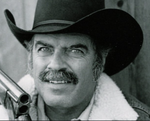In everyday life we’re required to trust many things, whether it’s human or inanimate. For example, when we drive a vehicle we assume a tire won’t blow out or the brakes won’t fail. We also trust a taxi driver, an airplane pilot, and a hunting guide.
But I’ve learned over the years that when it comes to hunting regulations you need to personally confirm the rules. I refer especially to the store employee who sells you a hunting or fishing license. We all know how complex regulations can be, from understanding a map of the hunt units as well as the specific rules for each unit. Then there’s the myriad of stamps, extra permits, fees, and other add-on expenses that you might not be aware. In these cases, trust doesn’t apply. You need to be certain.
Nowadays many of us get our licenses online, but you still need to be savvy of all the little details. It’s so easy to miss something and suddenly realize you’ve made a mistake and the warden is writing you a citation.

But let’s say you’re buying your license in a store and you’re not very familiar with hunting or fishing regulations. Maybe you’re in a different state or maybe you’re simply hunting a species you hadn’t hunted before. That being the case you trust the store clerk to steer you in the right direction and sell you all the mandatory permits. Best case scenario is to avoid that necessity and research beforehand so you know what you need to purchase.
Here’s an example of how a hunter got in serious trouble because he trusted the word of a clerk who worked in a large store. He bought a general elk license and asked the clerk if he knew of any good spots where he might hunt. The clerk opened up a map and pointed to an area where he thought the hunter would have a good chance for a bull.
The hunter, who was a newcomer to town, did not know the area and was delighted that the clerk was willing to share information. On opening morning the man drove to the unit the clerk had suggested and shot a big bull. A rancher came by and offered to help load the field dressed animal with his tractor. With the bull in his pickup the thrilled hunter drove to the highway and met a game warden. The officer checked the elk and the tag and began interrogating the hunter. Bad news. The unit where the hunter killed the elk was limited quota and, in fact, very hard to draw. The hunter was issued a citation and his elk was confiscated.

Despondent, the hunter sued the store because the clerk had given him false information. In the litigation that followed, the store won, but the judge told the store that they had to have signs that indicated the store was not liable for any misinformation offered by the clerks.
Unfortunately, big stores don’t necessarily hire knowledgeable people who understand the products they’re selling. The clerk in the Sporting Goods Department, for example, might actually be assigned to Electronics or Ladies Wear, and is just filling in temporarily for the regular Sporting Goods clerk. Then too, the Sporting Goods clerk might be a non-hunter or angler and have no clue about regulations and permits.
When I was working on an odyssey where I’d hunt deer in all 50 states, I did many DIY hunts in unfamiliar areas. I had no idea about the various rules and regulations and would research the laws when I arrived in the state. On one occasion I flew to a southern state, rented a vehicle, and went to a large store to buy a license and select a place to hunt. Since it was very late in the season there were only a couple places where there was a hunting season still open. I decided on a WMA (Wildlife Management Area). I bought my license, told the clerk where I was going and asked the clerk if I needed more permits or stamps. He indicated I was all set.
In the parking lot, before driving away, I thoroughly read the regs and discovered that I needed a special stamp specifically for hunting a WMA. Back in the store I went and told the clerk about the required stamp. He was embarrassed and apologized. Had I not done my own research I could have been in serious trouble if a warden checked me, even though I was completely ignorant of the requirement.
In these situations I was in big box stores where many, if not most of the clerks are not hunters or anglers. How about a sporting goods store that sells only hunting and fishing gear. Should they be trusted? You’d assume the clerks would be savvy about such basic things as buying a hunting license.
Once I was in a sporting goods store in the east to buy a bear hunting license. I was with a guy who was local who insisted all I needed to buy was a nonresident bear license and nothing else. The clerk agreed. Later that afternoon, while having dinner with my friend I looked over the regs. To my surprise I saw where I also needed a deer tag. He was surprised. We hurried back to the store before it closed that evening and I bought the appropriate tag.
There are many stamps and permits that might be required to hunt certain species, such as a pheasant stamp which would apply in specific states. Then, of course there’s the federal duck stamp that every waterfowl hunter should be aware of.

Some stamps or licenses are “attached” to the main license you are buying. In Colorado, for example, if you want a nonresident elk license you MUST also buy the season nonresident fishing license whether you intend to fish or not.
I’ve hunted Colorado elk for more than 50 years and have seen or known a handful of hunters who went fishing. To me it’s another way to tax the public. Also, in many states you must buy a general hunting license before you can get a big game license.
If you’re confused, simply call the state wildlife agency and ask specific questions. You might get the bureaucratic run around by having to press several numbers or you might have a long wait since calls are answered on a first-come basis.
In these modern times, computers will tell the clerks what licenses and tags are required, but don’t count on it. And never go along with a clerk’s advice on where to hunt unless you thoroughly check out the rules pertaining to that unit. Maybe he/she knows what they’re talking about, or maybe they don’t. You can’t afford to take a chance.














Along these same lines you can’t rely on a State licensing department to provide everything you need to hunt legally also. An example of this are a few units in Alaska where not only do you need a hunting license a black bear tag PLUS when you get to Alaska you need to go find and get A harvest form before hunting. Call it a 185.00 dollar lesson.
Great article Jim, your advice is spot on. I firmly believe in trust, but verify. Having been the warden in Goshen County, WY for 16 years, I’ll add that even WGFD employees can provide bad information. I encountered a group hunting pheasants in plain view of the highway in January one year. Pheasant hunting always ends 12/31. I contacted the group and learned that an employee in the Cheyenne office had told them the season extended into January. I provided correct info, asked them to end their hunt and corrected things with our Cheyenne office. Humans can and do make mistakes. It’s best to read the regs. yourself and be certain you have the current version.